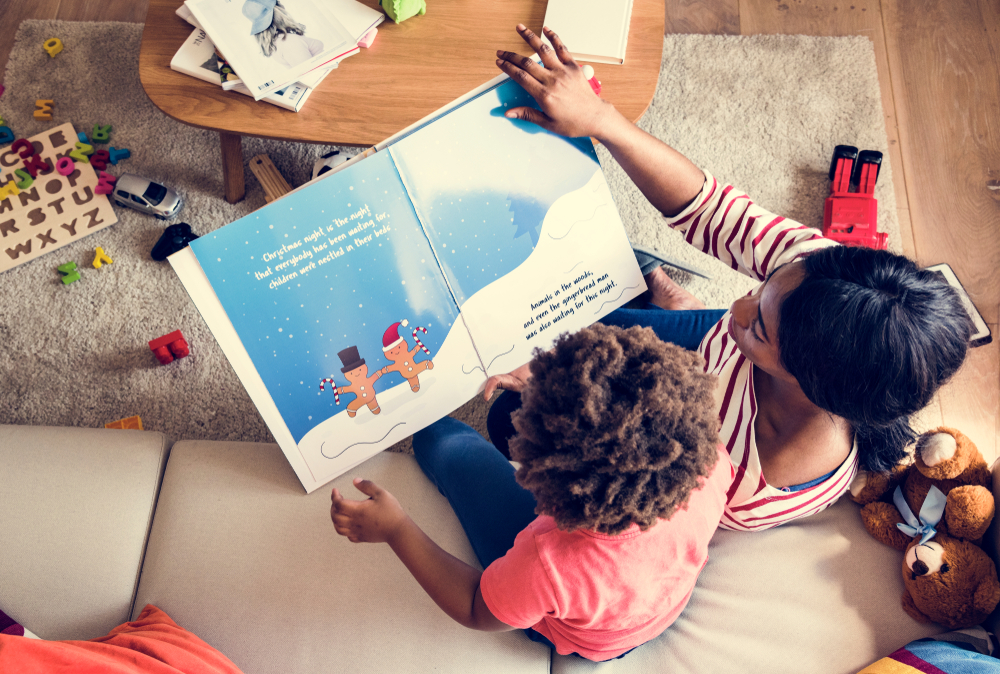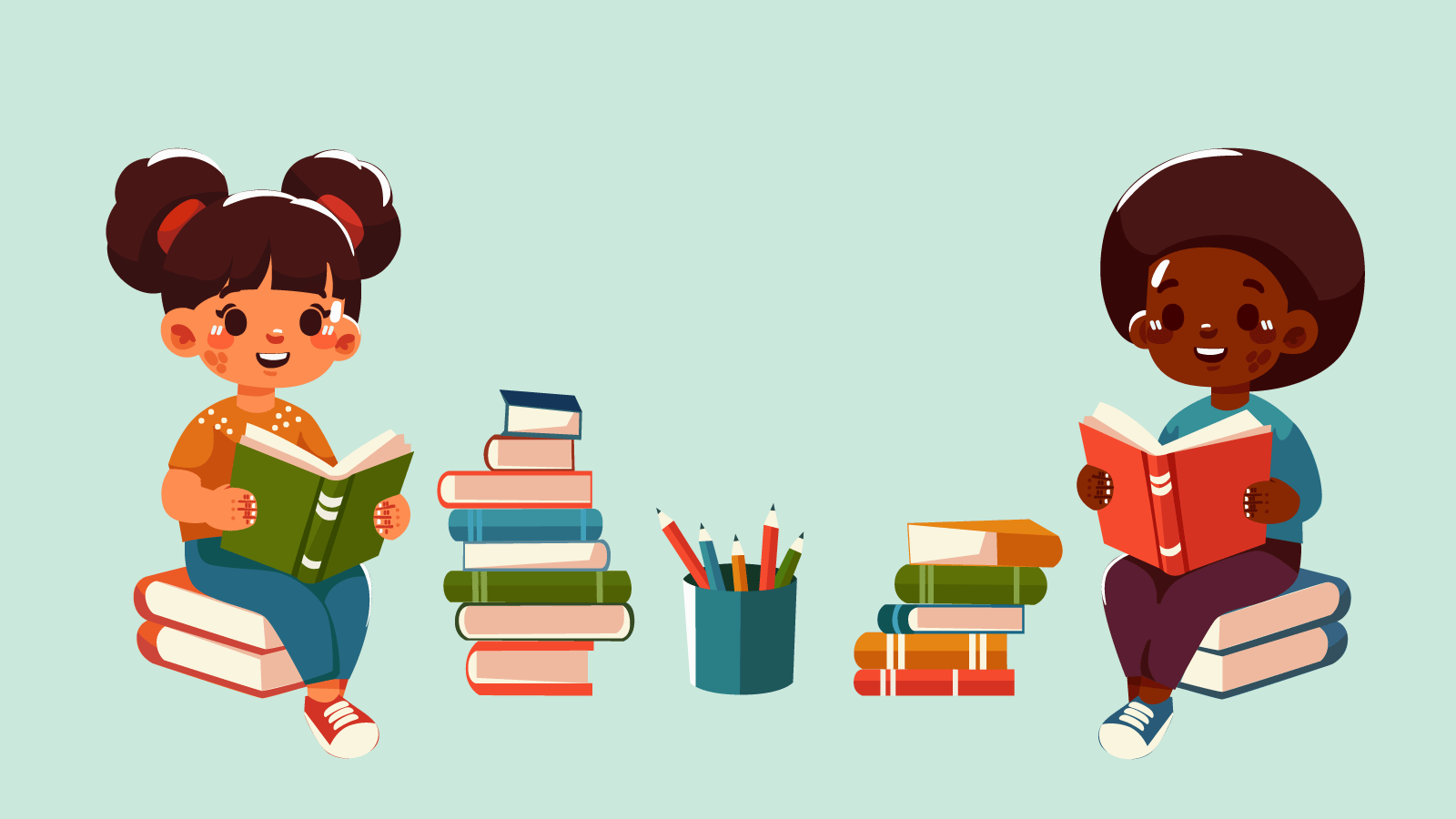Understanding context Reading Comprehension Worksheets for 6-Year-Olds
5 filtered results
-
From - To
Explore our "Understanding Context Reading Comprehension Worksheets" designed specifically for 6-year-olds! These engaging worksheets help young learners grasp the importance of context clues in texts, enhancing their reading skills and comprehension. With age-appropriate activities, children will practice identifying keywords, analyzing sentences, and making connections within stories. The colorful illustrations and fun exercises make learning enjoyable, fostering a love for reading. Each worksheet is tailored to build confidence and promote critical thinking, preparing kids for future academic success. Empower your child with essential reading strategies through our delightful and interactive comprehension resources. Get started today and watch their skills flourish!
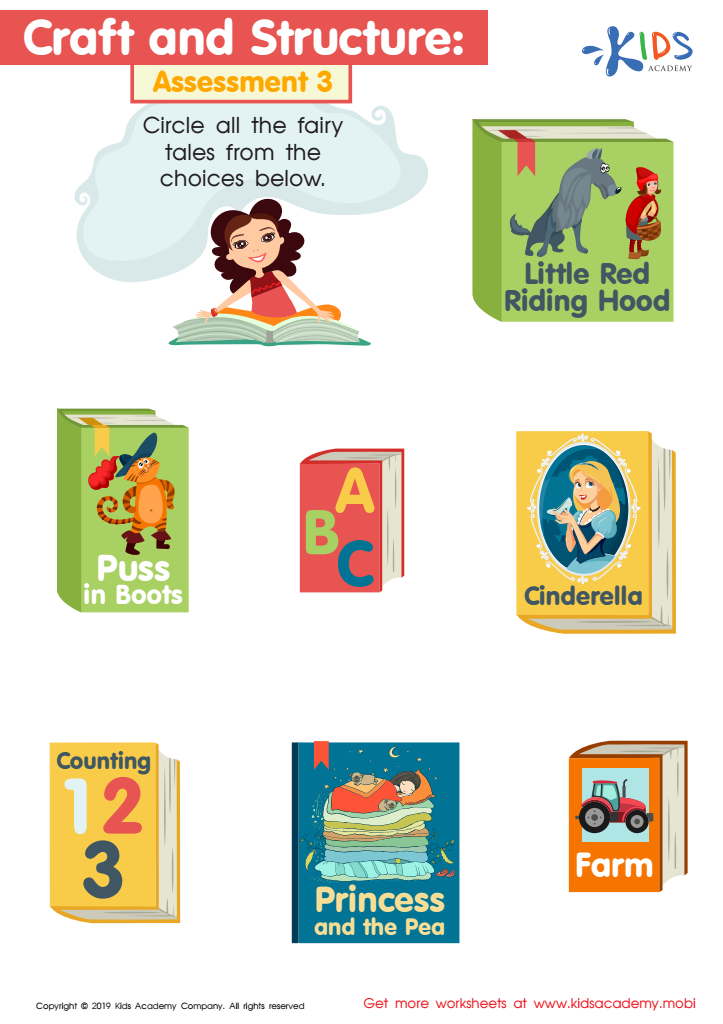

Craft and Structure: Assessment 3 Worksheet
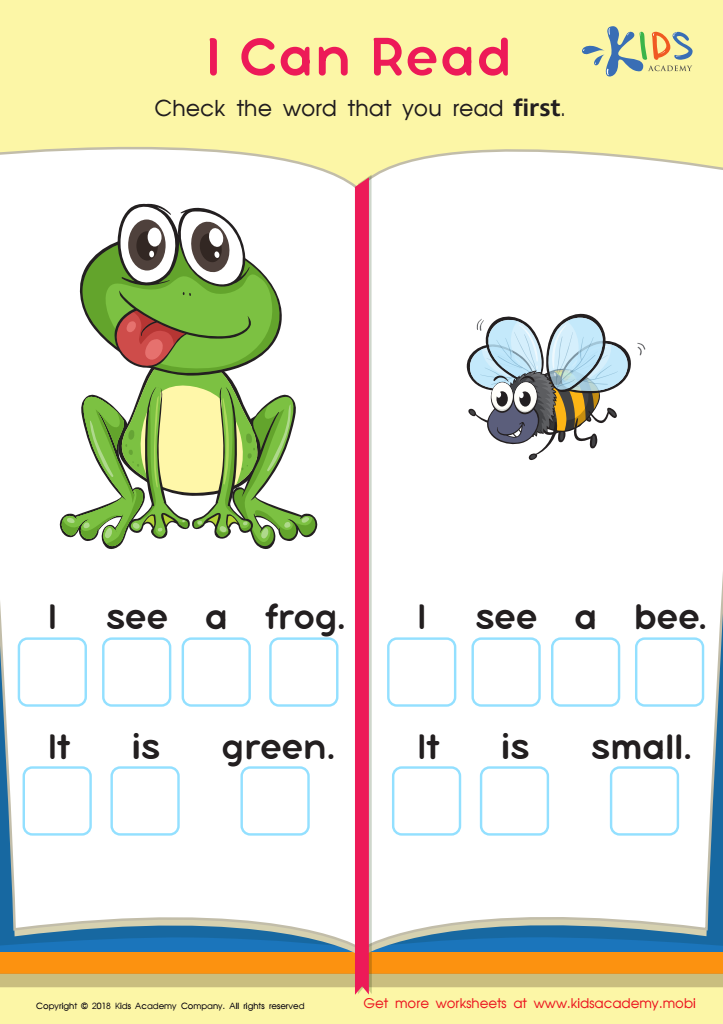

I Can Read Worksheet
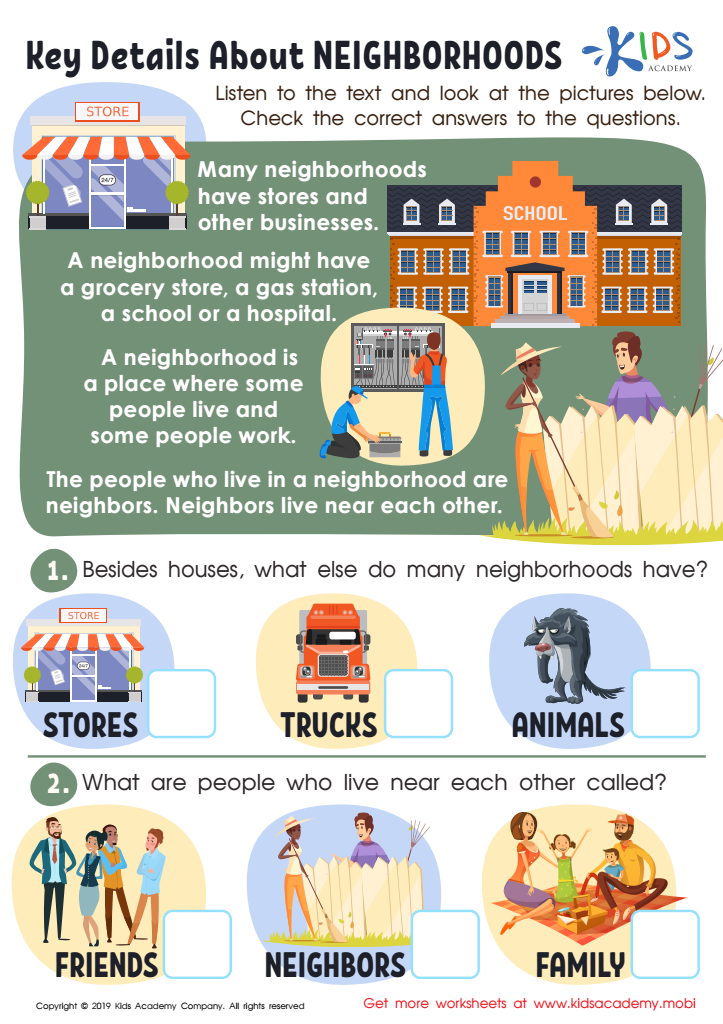

Key Details Neighborhoods Worksheet
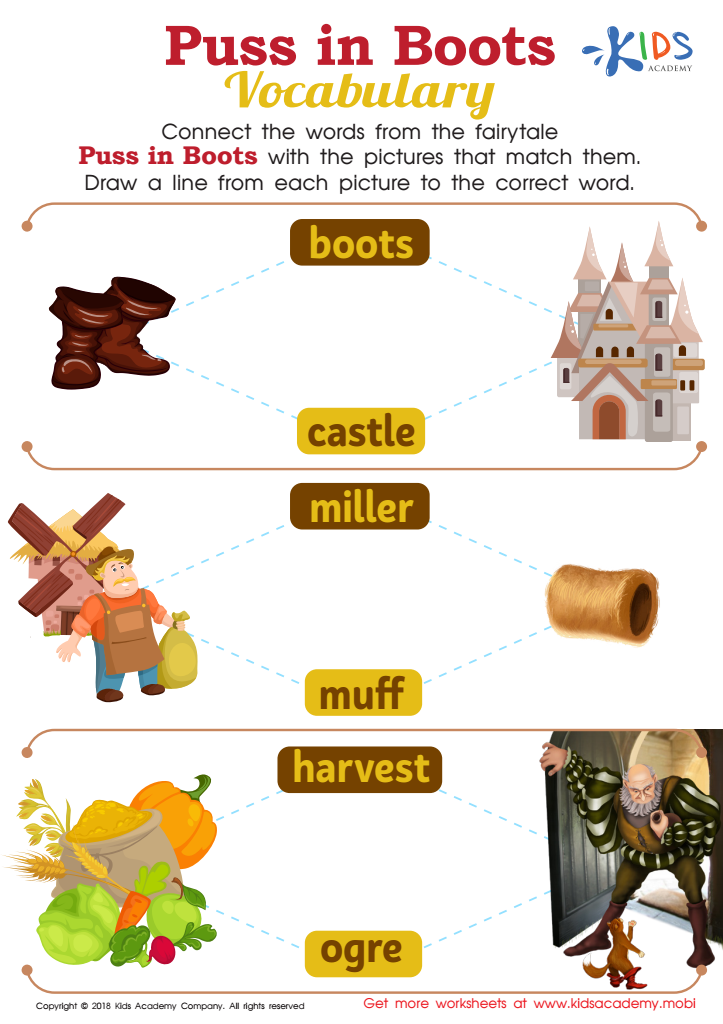

Puss in Boots Vocabulary Worksheet
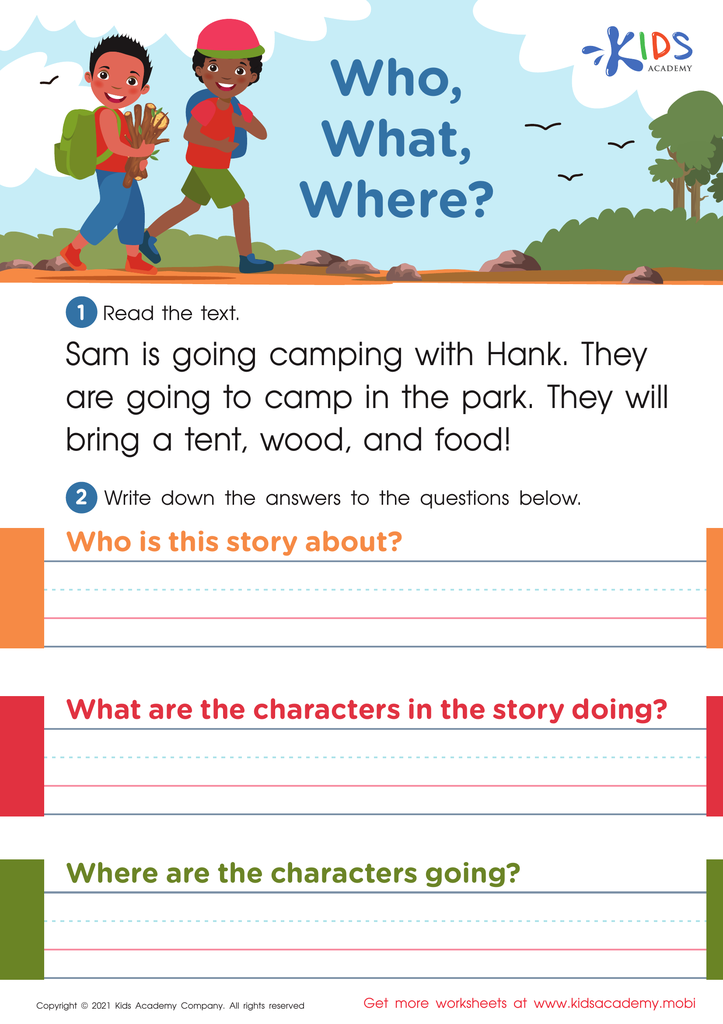

Who, What, Where? Worksheet
Understanding context is crucial for reading comprehension, especially for 6-year-olds who are just beginning to explore the world of literacy. At this age, children are not only learning to read words but also to understand the meaning behind them. Context helps make connections between the text and their experiences, guiding them to grasp the story's purpose and emotions.
Parents and teachers should prioritize this skill because it enhances critical thinking and promotes deeper engagement with the material. When children can recognize the setting, characters, and feelings in a story, they create mental images, leading to better retention and recall. It also encourages empathy as they relate to characters' struggles and triumphs, nurturing their social-emotional development.
Additionally, comprehension lays the foundation for future academic skills. A child who understands context will be better prepared for higher-level reading tasks, including interpreting nonfiction texts and forming opinions. By fostering an understanding of context, adults can help shape well-rounded readers who enjoy literature and are eager to learn. Thus, nurturing this skill not only enriches a child's immediate reading experience but also sets them on a path for lifelong literacy and learning success.
 Assign to My Students
Assign to My Students







